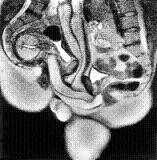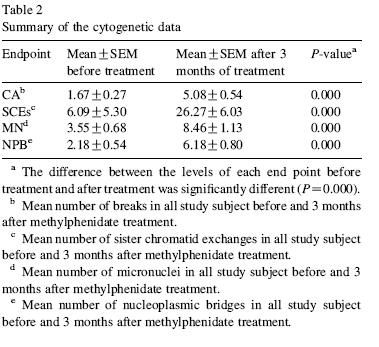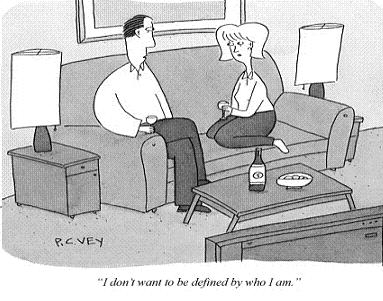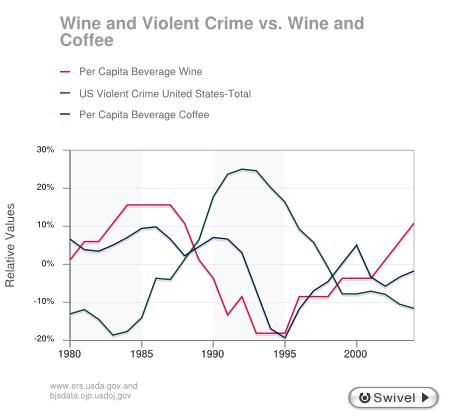Cool Beyond Words
How To Draw (This Is Not An Article About How To Draw)
Continue reading:
"How To Draw (This Is Not An Article About How To Draw)" ››

 Score: 100 (104 votes cast)
Score: 100 (104 votes cast)
Language And Behavior, Embodiement, and Chronic Pain

Continue reading:
"Language And Behavior, Embodiement, and Chronic Pain" ››

 Score: 36 (40 votes cast)
Score: 36 (40 votes cast)
How To Be Powerful, And Why You Are Not

Continue reading:
"How To Be Powerful, And Why You Are Not" ››

 Score: 47 (51 votes cast)
Score: 47 (51 votes cast)
How To Lose Weight, Method #394
Continue reading:
"How To Lose Weight, Method #394" ››

 Score: 37 (39 votes cast)
Score: 37 (39 votes cast)
Holy Crap, I'm On Wikipedia
Imagine my surprise when I see that a major source of incoming links was Wikipedia. It's at the bottom, under "Criticisms."
Some narc is going to email me that anyone can edit the wiki, and this link will probably soon be deleted. Hey, man, why so negative, you're harshing my buzz.

 Score: 4 (8 votes cast)
Score: 4 (8 votes cast)
Number Needed To Treat
How a relatively unused metric can help you score chicks at the Limelight.
That's right, I said score chicks. You got a problem with that?
Continue reading:
"Number Needed To Treat" ››

 Score: 5 (5 votes cast)
Score: 5 (5 votes cast)
Are You Good At Reading Faces?

Do I look like I'm bluffing, bee-atch?
Can you correctly identify emotions if they only briefly flicker across the face? How good do you think you are?
Was a certain emotion harder or easier for you? Did it seem like some of the faces flickered faster than others? It may not have anything to do with the emotion. It might be the test.
Continue reading:
"Are You Good At Reading Faces?" ››

 Score: 8 (8 votes cast)
Score: 8 (8 votes cast)
Aren't Two Antipsychotics Better Than One? The Most Important Article on Psychiatry, Part 3
MY PSYCHIATRIST WANTS TO GIVE ME TWO ANTIPSYCHOTICS AT THE SAME TIME. WHAT SHOULD I DO?
Undoubtedly, your first impulse will be to punch him in the testicles, but as you know, the Kellogg-Briand pact (1928) expressly forbids this. However, it is notably silent on the issue of voodoo/ shark attacks, which can be used with discretion.
Continue reading:
"Aren't Two Antipsychotics Better Than One? The Most Important Article on Psychiatry, Part 3" ››

 Score: 12 (14 votes cast)
Score: 12 (14 votes cast)
No, Not Effexor, Too!? The Most Important Article On Psychiatry You'll Ever Read, Part II
In which Anne Neville agrees to believe pretty much anything anyone ever tells her, ever, and Richard discovers people are gullible idiots.
Continue reading:
"No, Not Effexor, Too!? The Most Important Article On Psychiatry You'll Ever Read, Part II" ››

 Score: 19 (21 votes cast)
Score: 19 (21 votes cast)
The Most Important Article On Psychiatry You Will Ever Read
I'm warning you.
Continue reading:
"The Most Important Article On Psychiatry You Will Ever Read" ››

 Score: 73 (73 votes cast)
Score: 73 (73 votes cast)
So At Least Two People Agree With Me
From the New Yorker, 6/25/07
If I could change this cartoon in any way, I'd add three words to the caption: "So I drink."
And, as a bonus, I come across this sentence in Walter Russell Mead's essay in the current issue of Foreign Affairs:
The French have long felt that Englishmen do not like women, are bored or frightened in their presence, and turn to drink as a substitute for female company.
I don't know how accurate the stereotype about Englishmen is, but the link between alcohol and women is dead on.

 Score: 1 (3 votes cast)
Score: 1 (3 votes cast)
I Win Again
Seems like some people liked my Iraq post.
Other people hated it, of course, keeping in check my gigantic ego. Thanks!
6/5/07 Addendum: But wait: PsyBlog has decided I have the "Best Psychiatrist's Blog." Take that, Lisa's beliefs!

 Score: 1 (3 votes cast)
Score: 1 (3 votes cast)
The Girls Of Pfizer
http://www.youtube.com/watch?v=F_tkar2rLEQ
Oh, get over yourselves. That's hilarious.

 Score: 1 (1 votes cast)
Score: 1 (1 votes cast)
Here's What Happened When I Went To LAX With No ID: Nothing

This has nothing to do with psychiatry, except that it's about my jet-setiing ways, and that's what psychiatry is really all about, after all.
A while ago I read an article in Wired called "The Great No-ID Airport Challenge," and I finally mustered the courage to try it.
There are two checks at security. At the first, they simply look to see if your ticket matches your ID. If it does, they send you off into one of the several metal detector lines, where you wait to place your belongings on the belt, take off your shoes, etc.
I hid my ID in a magazine, and talked myself out of my main worry: what's the worst that could happen? I mean, I can't be the first guy in LAX to not have an ID, right? Surely, there must be some system to handle these occurrences?
So I wasn't worried about being turned away so much as being extremely delayed; my fantasy was that they'd take me to the "back room" and I'd have to "con" my way through, i.e., verbally convince them I was not a terrorist.
Well, none of that happened. What did happen paralleled the Wired story: the security lady said, "no ID?" and I said, "I lost it and--" and she cut me off. And sent me over to a closed security lane, which was promptly opened and staffed. They gave me the SSS treatment-- they x-rayed and manually went through my bag, waved the wand over me, patted me down-- and that was it. I walked to my gate.
Here's the important part, in case you missed it: by not having ID, I totally bypassed the long lines in the regular security lanes. I saved myself-- what, 30 minutes?
It then occurred to me that I could have bypassed the line going to the first security lady-- another 10 or so minutes-- by walking directly up to her and telling her I was panicked because I had lost my ID, what should I do? My money says that instead of telling me to get back in line, she would have simply sent me to the empty security lane.
For those who don't know: SSSS on your ticket means you have been "randomly" selected for additional screening. It can appear on your printed ticket, or a screener can write if if they don't like the looks of you.

 Score: 6 (8 votes cast)
Score: 6 (8 votes cast)
Not Yet Ready For Porn

Surprising results from the study, "Magnetic resonance imaging of male and female genitals during coitus" in BMJ:
We did not foresee that the men would have more problems with sexual performance (maintaining their erection) than the women in the scanner.
There is so much wrong with that sentence.

 Score: 4 (4 votes cast)
Score: 4 (4 votes cast)
Violent Crime vs. Coffee vs. Wine
Draw your own conclusions.
Violent crime range: 1.2-2.0 million
coffee: 20.2-27.5 gallons
Wine range: 1.7-2.3 gallons
From http://www.swivel.com/graphs/show/1163271

 Score: 1 (1 votes cast)
Score: 1 (1 votes cast)
Lunar Cycles and Psychiatry
Addendum 11/15/06: Fair is fair. I found an even better review by one Eric Chudler, PhD at Univ. of Washington, called Neuroscience for Kids. (don't laugh). I didn't review all the links, but it is certainly more comprehensive than what I have here.
You know how everyone says that people go insane when there's a full moon? Well, I looked it up.
Most studies finding a link vbetween violence and the moon were done in the 1970s. For example, a 1978 study found a lunar relationhsip to everything-- suicides, asssaults, MVAs, and psych ER presentations, with both homicides and assaults both occurring more often around the full moon. Then again, you have to be suspicious of any study that actually tells you they actually used a computer.
But by the 1990s, this lunar relationship was on the way out. Consider a 1997 study in Italy found no relationship between community psych contacts and the moon phases. A 1998 Australian study found no relationship between violent episodes in inpatient psychiatric patients and the moon phases. A Spanish 2002 study found no link between ER presentations for violence and the moon's luminosity. A German 2005 study found only the weakest link between completed suicide and the moon (the new moon, mostly.) A 1992 Canadian study reviewed 20 studies covering 30 years and found no link to attempts or completed suicides and lunar phases. And, to prove a point, a gigantic Austrian study in 2003 found no relationship between lunar parameters (phases or sideric) and any ER presentations.
Which brings me to one point-- do Americans do anything other than drug studies? Well, one non-clinical study was done in Texas and found no link between prisoner violence and lunar phases.
---
So it is with violence and suicide. But what about other behaviors? I haven't had time to investigate the question, but two studies are suggestive. One (British) 2000 study found a slight increase in presentation to family practice clinics during full moons that was not due to psychiatric symptoms. An Austrian 2003 study found a strong relationship between thyroid clinic appointments and dates around the full moon. And a strange (British) 2003 study finding that women called a crisis center more frequently on the new moon.
I did find an interesting (Greek) study finding an excess of seizures on full moons (34% vs. about 21% for the other phases.) Importantly (and in contrast to suggestions by other studies) these were not pseudoseizures, because all patients were monitored. The authors speculate either electromagnetic/gravitational effects (hey, it could happen) or an interaction between the intrinsic seizure threshold and the environment (i.e. you can change your own threshold.)
My interpretation of this is that the moon can't affect your behavior directly (duh), but one's relationship to lunar cycles could influence your behavior. Take the classic wolf and full moon relationship. Prey animals, such as rats, generally reduce their activity during the full moon (don't want to get caught, I guess.) Wild maned wolves (which eat rats) travelled significantly less during the full moon. The authors' explanation was that prey is less available, so wolves would want to conserve energy. Additionally, maybe one reason why so few studies are American is that we have a lot of artificial night light, so the moon has less or no influence, while elsewhere there is less artificial light? Who knows. I'm going to bed.

 Score: 5 (7 votes cast)
Score: 5 (7 votes cast)
Pseudoseizures vs. Seizures
The title says it all: Ictal eye closure is a reliable indicator for psychogenic nonepileptic seizures.
First, the bottom line:
50/52 patients with pseudoseizures closed their eyes during their "seizure," while 152/156 of actual epileptics opened their eyes during their seizures. That's a sensitivity of 96% and a specificity of 98%. That's gold.
Now, the details:
The authors took 234 consecutive "seizure" patients, hooked them up to video EEGs and stopped their medications. There were 938 total ictal events in 221 patients. 52 (23%) had pseudoseizures, and 156 (70%) had eplieptic seizures. There was a 3:1 female predominance in the pseudoseizures, no difference in epileptics.
In the epileptics, there was rhythmic eye blinking during tonic-clonic activity, and the eyes closed after theseizure was finished.
An interesting corollary to this is when pseudoseizures occur in an actual epileptic: quoting the authors, "the simple question of eye opening or closure can help differentiate between the two types of events. One previous study found that patients with both types of events tended to have their eyes closed during PNES and open during ES.(6)"
Outstanding.
Of course, this is isn't going to mean much to psychiatrists, apparently.
A questionnaire was put to neurologists (N=39) and psychiatrists (N=75) about the utility of video EEG in diagnosing pseudoseizures. 70% of the neurologists, but only 18% of the psychiatrists, thought that video-EEG was accurate "most of the time" in diagnosing pseudoseizures. 12% of the psychiatrists (no neurologists) said it is accurate "almost never." (3% of the psychiatrists gave no clear response. Why doesn't that surprise me?)
So here are some other differentiating symptoms:
In seizure patients, there is a crescendo-decrescendo quality to the spike-wave frequencies on EEG. In pseudoseizure patients, however, the frequency is the same from beginning to end, and it comes on suddenly as if a switch was flicked. The spike-wave on EEG is actually motion artifact, and typically runs around 4 Hz, while epileptics have frequencies that vary between 4-25 Hz.
In a study of 40 pseudoseizure vs. 40 matched normal controls, the pseudoseizure group had more left handers, reduced strength and speed in both dominant and non-dominant hands, and reduction in the dominant hand advantage in strength and speed (i.e. both hands performed equally badly-- the dominant hand wasn't a little better.) Interestingly and importantly, the authors did not think this was due to faking or psychological factors, but felt that it was due to actual neurologic impariment in bilateral pathways: 65% had had a closed head injury, 27% had had physical abuse, and 17% had had a history of substance abuse. 40% had an IQ less than 90!
A study in epileptics vs. pseudoseizure patients trying to determine how long after admission to a video EEG unit it takes for patients to have events (answer: 88% had it on day 1) also found that urinary incontinence, focal neurologic exams, and tongue biting were about the same in both groups. But more epileptics had events less than one minute, and more pseudoseizures lasted > 5 minutes (and very few (13%) lasted less than one minute.)
Slightly different results were found in another study: 11/28 pseudoseizure patients had them on day 1, but 9/28 needed an average of 5 days. 19/28 had an induced pseudoseizure to IV saline challenge within 3-7 minutes. But still-- 3 days should be enough for most patients.
And alexithymia is of no value. It is found more often in epileptics and pseudoseizure patients equally, though still more than expected in the community. A larger, controlled trial had found a similar inability for alexithymia to differentiate: alexithymia was very common in epileptics (76%) and pseudoseizures (90%). Thus, it is likely that alexithymia is a coping strategy, and not an independent trait.
Addendum 11/5/06: I did find an interesting (Greek) study finding an excess of seizures on full moons (34% vs. about 21% for the other phases.) Importantly (and in contrast to suggestions by other studies) these were not pseudoseizures, because all patients were monitored. The authors speculate either electromagnetic/gravitational effects (hey, it could happen) or an interaction between the intrinsic seizure threshold and the environment (i.e. you can change you rown threshold.)

 Score: 2 (4 votes cast)
Score: 2 (4 votes cast)
Ritalin Causes Cancer?
An eye-opening study from some Texans.
18 kids, newly diagnosed with ADHD, started the study, only 12 finished. They showed up on day 1, and blood was taken. The kids were then given Ritalin (methylphenidate) 20-54mg/d, as part of ordinary treatment, for three weeks. At the end of three weeks, another blood sample was taken. The bloods were evaluated for cytogenetic abnormalities.
In every single case, the frequency of chromosomal aberrations, sister chromatid exchanges (SCE), micronuclei, and nucleoplasmic bridges were all dramatically higher than at baseline. Not a little higher-- massively higher.

The authors had, in their introduction, summarized the absence of substantial evidence (or actually even studies) for carcinogenicity or mutagenicity, except one long term (2 year) high dose study in rodents-- it gave them hepatocellular carcinoma. But there has been nothing done in humans.
There are some problems with the study, beyond the obvious small sample size.
First, there's no control group. The assumption is that the only new factor over the three months of the study was the taking of Ritalin, so that is the likely culprit. Of course, it is certainly possible that something else occurred during those three months that could have caused this effect, such as a new illness, new meds, taking up smoking, etc. In all twelve people. At the same time. Sure, it's possible.
Second, the pretreatment group actually had less sister chromatid exhcanges than are expected on average. In a follow-up letter letter , the authors indicate that the known average frequencies of SCE are actually based on adults, not kids. Do kids have lower frequencies in general? Maybe.
The authors in that same letter also observe that despite the perception that there has not yet been on observed link between Ritalin and carcinogenicity, in fact
"the national toxicology program (NTP)—CERHR expert panel report on the reproductive and developmental toxicity of methylphenidate, indicate that only one study addressed the carcinogenic risk of methylphenidate treatment in humans... conducted by screening pharmacy and medical records, indicated that there was no increase in reports of cancer in a small number of patients taking methylphenidate (only 529 patients)."
I looked up the cytogenetic effects of amphetamines.
One study found methamphetamine exposure correlated to frequency of micronuclei and SCEs in humans (though, in hamsters, this effect was due exclusively to methamphetamine itself, and not its metabolites; and free radical scavengers also reduced this effect).
An old 2 year rodent study found decreases in number of neoplasms when given dl-amphetamine. Another study found a similar reduction, especially in pheochromocytomas, pituitary adenomas, and breast adenomas.
But again, these are rare studies, and this one here is the first done, prospectively, in humans.
What is astounding to me, apart from the obvious, is that no one knows this article. It has not been referenced in any subsequent articles. I can't find one psychiatrist, academic or otherwise, who has even heard this. They all look at me blankly: "Really?"
Yet, simultaneously, psychiatrists live with complete confidence that Ritalin is safe. They've never checked the known information before, of course, so what allows them to be so confident I have no idea; and they certainly don't run Medline once a month "just to keep up with all of science"-- but they're sure of what they know. Not even an empty patronizing nod to "but of course, our knowledge base is expanding..."
The point is not that Ritalin is unsafe. This study could be a load of crap, for all we know. But shouldn't psychiatry have at least heard of this study? What is the mechanism to disseminate this kind of information? How long does it take for something like this to hit the psychiatric press? In other words, given psychiatrists' arrogant confidence, how do they believe they would be informed of new developments? They don't really read psychiatry journals. They certainly aren't going to read cancer journals.
9/5/06 Update Further info suggests this may be a fluke.

 Score: 2 (2 votes cast)
Score: 2 (2 votes cast)
Who Are Academics Writing For? (For Whom Are Academics Writing?)
Interesting study from Princeton psychologist Daniel Oppenheimer, called "Consequences of Erudite Vernacular Utilized Irrespective of Necessity:Problems With Using Long Words Needlessly." (I should mention I have not read, and can't find, an actual copy of this study.)
Took a selection of writing samples (grad school applications, sociology dissertations etc), and changed each of the words to more complex/longer synonyms. Then he gave these samples to 71 students and asked them to judge the intelligence of the authors. The more complex and flowery the language, the dumber the author was assumed to be.
Think about it...
From collision detection

 Score: 11 (11 votes cast)
Score: 11 (11 votes cast)
For more articles check out the Archives Web page ››



